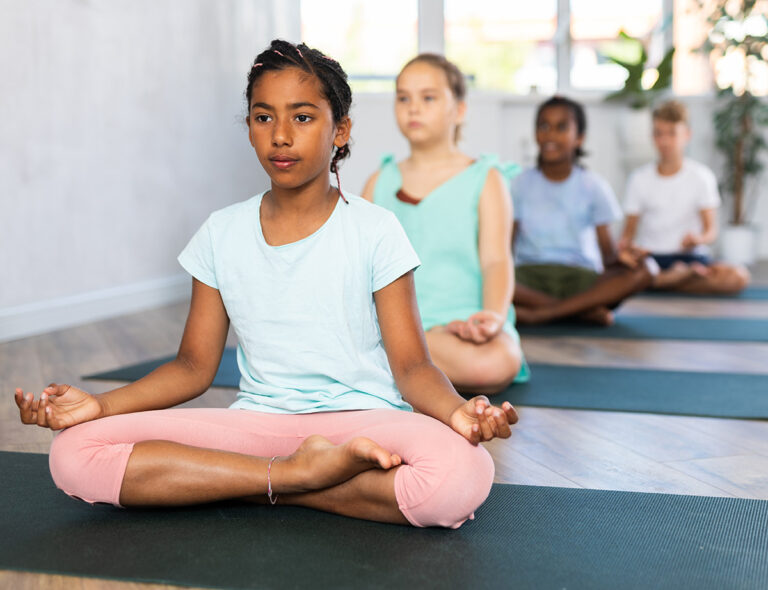By Amanda McGregor
At Christmas, when their son is overjoyed to travel to Cape Cod to see his grandparents and play with his cousins, Katie Campbell Simons and her husband do what they can to prepare him for the inevitable end to all the excitement when the family returns home to Roslindale.
“If we know he’s going to get upset because we have to leave the Cape or go back to school, we do whatever we can to prepare him,” says Katie, whose son Joe turns 4 in March. They also have an infant, Sam, who is 5 months old. “We talk about it a lot, and we tell him what’s going on. When we go there, we say, ‘Now, remember, we’ll be there two days, and celebrate with Grandma and Grandpa, and play with toys – and then we’ll go back home and it’s time to go to school.’ And I think that helps a ton.”
Whatever the age, the holidays can generate a frenzy of excitement, anticipation and hype for children. And when they’re all over – and the presents have been opened, and the family parties are over, and the decorations come down and get put away – some children and parents can feel a sense of disappointment.
Anthony Centore, Ph.D., director of Thrive Boston Counseling in Cambridge, advises parents that the experiences they provide their children last much longer than gifts – and leave everyone feeling happier and more fulfilled after the holidays.
“It’s interesting because many of us believe that if a child doesn’t get that item he or she wants for Christmas, it’s something that will be emotionally damaging for a child,” says Centore. “But spending time with your children is the thing they’ll most remember and most value.”
Establish Traditions Early
Louise Marcoux, who lives in Sharon with her husband and two daughters, ages 13 and 15, suggests that one way to avoid feeling letdown after the holidays is to set a pattern with your children early on and create a rhythm around the holidays – without making it overwhelming for parents.
“Have a few things to look forward to other than the big Christmas Day thing when everything gets torn off and then it’s, ‘Oh, now what?’” said Marcoux.
Traditions may include making wreaths together, putting up the tree and decorating it, going on a family hike, or having a baking day. Over the years, children come to expect and cherish those patterns.
“It makes us happy – those little happy moments that don’t have to be fantastic or perfect, but something we do together,” says Marcoux, director of Religious Education at the Unitarian Church of Sharon. She recommends the book Unplug the Christmas Machine (William Morrow, 1991), by Jo Robinson and Jean C. Staeheli, which provides a wealth of inspiration and advice.
Turn Disappointment into ‘Teachable Moments’
Ross Solomon, Ph.D., a clinical psychologist who works in the Stoughton school district, believes that when children are disappointed after the holidays that they didn’t get the gifts they wanted, parents can turn that into a teachable moment.
“Your kid might be disappointed he didn’t get what Johnny got down the street, so validate the feeling and validate his experience, but make it a teachable moment,” says Solomon, who has two children, ages 11 and 13. “It’s an opportunity to talk to kids about the material part of what the holiday has become, versus the true meaning. . . . It’s about setting up expectations, and teaching them in advance and over time.”
Parents can also help their children re-frame their perspective. “What you do is just say, ‘I love you, but you can’t always get everything you want.’ Instead, talk about, ‘What was your favorite thing that you got?’” says Solomon. “You need to educate your children. Don’t personalize it as a parent if they act disappointed.”
Katie Campbell Simons and Bill Simons are an interfaith family, celebrating both Christmas and Hanukkah in December, so they make an effort to try to limit the amount of gifts their children receive over the course of the two holidays, and teach them that the holidays are about spending time together when both parents are off work.
“We’re going to Edaville, where they’re going to have The Polar Express this winter,” says Katie. “Joe loves that movie, so we’ll do that instead of a really big gift, and have that time together.”
Keeping Holidays Magical for Older Children
If children are grappling with the loss of some of the magic and mystery when they learn that Santa Claus isn’t real, there are ways to cope.
“I’ve had some parents make the transition by saying Santa lives in our hearts,” said Centore. “I’ve had some religious clients say the gifts are from God, and that seems to work out well for them. The day when you learn the Tooth Fairy is actually mom changes your perspective a little bit, but on the other hand, it really helps you to appreciate mom.”
To keep teenagers engaged and happy around the holidays, talk about expectations well before Christmas. And rather than try to force participation in every holiday-related event, ask your teen what he or she wants to do this year.
“If kids are in that phase that they’re not so verbal and grunting, just say, ‘What are the three things you want most out of this experience at the holidays? If you had to do one thing with the family, what would your choice be?’” Marcoux suggests.
Don’t give teens the option to check out altogether. “Even if they’re not offering much, give an option and pick that thing to do with your reluctant adolescent,” urges Marcoux. “It’s important, because what you do becomes part of who you are.”
Slow Down the Pace
The holidays put so much pressure on families – time, energy, and money – and it’s important for parents and children to be selective about the amount of activities they take on, and keep expectations reasonable.
“You have to slow down and notice what’s going on rather than the forced march of things we’re supposed to do,” says Marcoux. “This Martha Stewart stuff just drives me crazy – this pressure to have everything perfect is painful for some people and can be very stressful.”
Families can embrace the holidays as a way to live life the rest of the year, Centore advises. “There is usually a lot of activity involved, so after the holidays, if all of that ends, it’s understandable that this might be a period of letdown,” said Centore. “But if we use holidays not as an occasion, but an example of family time – and doing things with the family and kids, and making that a priority – Christmas is a reminder of how families should be.”
Amanda McGregor is a freelance writer in Somerville.



















